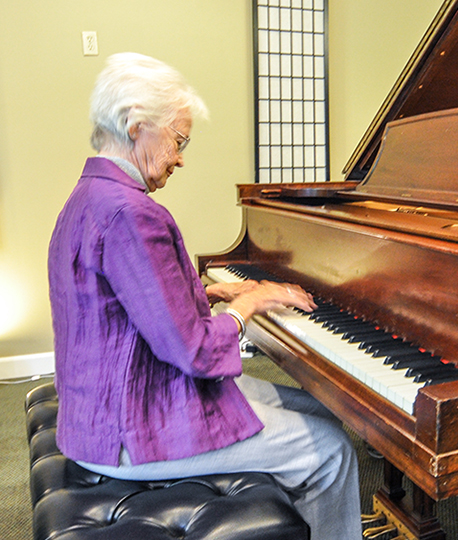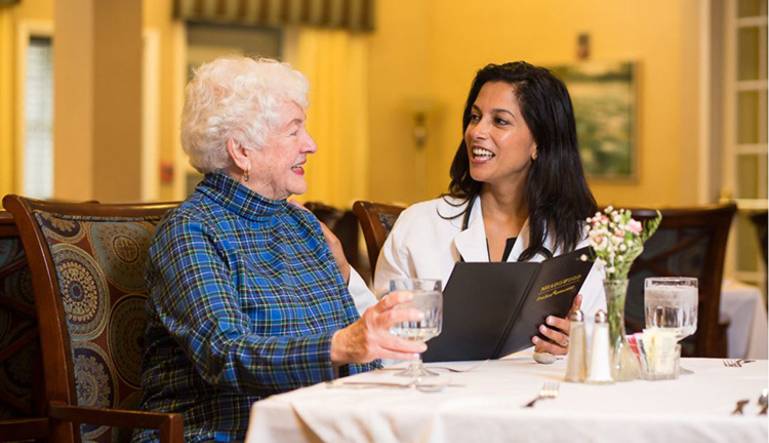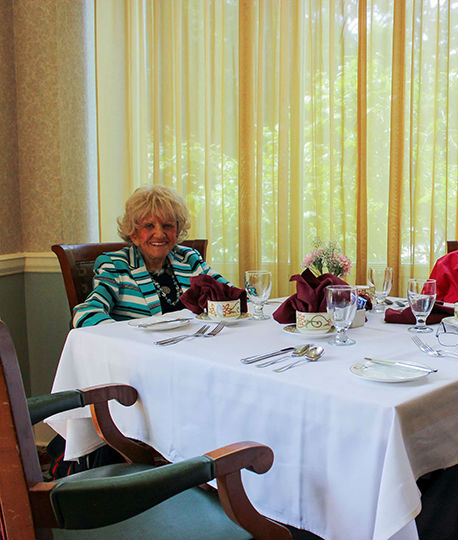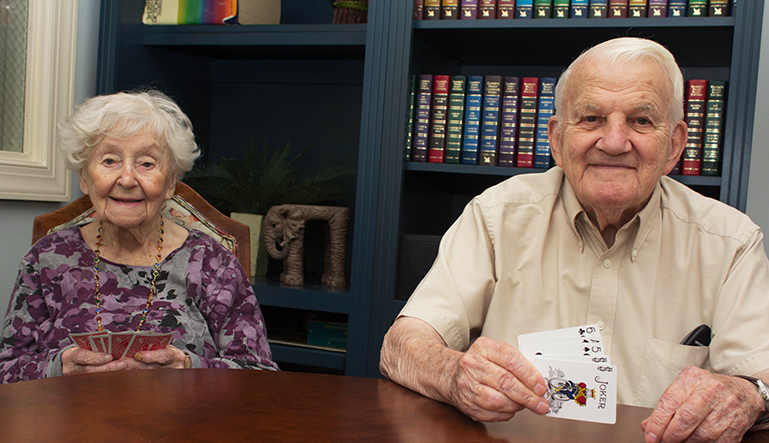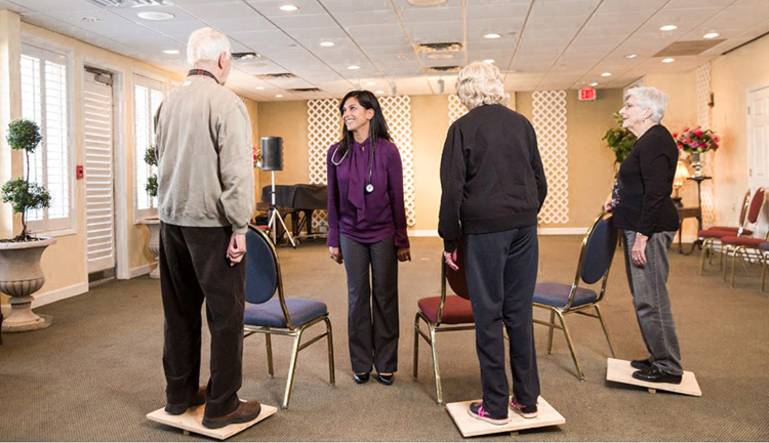<!–[CDATA[When a senior loved one has Alzheimer’s disease or a similar form of dementia, their family caregiver may have difficulty structuring the day with meaningful activity. As physical and cognitive abilities become impaired, it can be more challenging to find activities for adults with dementia to enjoy. But it is important to the senior’s mental well-being to find ways to help them feel productive and empowered.
If you are caring for a senior with Alzheimer’s disease or a related form of dementia, this information will be helpful.
Routine Helps Empower Adults with Dementia
Creating a structured daily routine helps an adult with dementia feel successful. That’s because having scheduled activities makes it less necessary for the adult to remember things. For adults with dementia, short-term memory is often lost early in the disease process.
Routine is also beneficial for reducing the anxiety and agitation that adults with Alzheimer’s often experience. The senior knows what to expect each day and takes comfort in the feeling of independence that this knowledge provides.
Creating a Daily Routine for an Adult with Dementia
Here are a few suggestions Alzheimer’s caregivers can use to create a productive daily routine for a loved one:
- Structure: Try to establish and stick to a daily routine. Have specific times each day for getting up, going to bed, eating meals, taking a walk, and running errands. This structure helps to promote independence and self-esteem for adults who are struggling with memory. That’s vital for a person with dementia who is typically at an increased risk for depression.
- Daily chores: When a person who has dementia has daily chores to complete, they feel more like a productive member of the household. Create a list of chores your loved one can do or assist with such as, folding the laundry, dusting the living room, sweeping the kitchen floor, and setting the table before meals. During warmer weather, they might benefit from the responsibility of watering container gardens on the patio.
- Life enrichment: Alzheimer’s often robs people of their verbal skills in the earliest stages of the disease. This can lead to frustration, loneliness, and even depression. A few suggestions for meaningful activities at home include art and music. Art allows people with Alzheimer’s to express themselves in nonverbal ways. Incorporating music into the daily routine is also beneficial. People with Alzheimer’s often maintain the ability to sing favorite songs long after they have lost their ability to speak. Sing-alongs, painting, knitting, and scrapbooking are just a few ideas to try.
- Physical fitness: Working physical activities into the senior’s daily routine is also beneficial. It promotes better quality of sleep, while also reducing stress and anxiety. Chair exercises can be safe and enjoyable, and help to build strength, balance, and endurance. When the weather is nice, you could take short walks together or even enjoy a nature stroll at a local park. Bird-watching is another idea. It incorporates fitness with stimulating brain activity. Be certain to have a GPS bracelet or pendant for your loved one to wear in case you are separated.
It’s important to remember that the positive feelings generated by productive days linger long after the actual memories of the day are lost. That’s what allows people with dementia to live their best quality of life.
At Five Star, we take a holistic approach to daily life. Through our Lifestyle360 program, we offer activities that target each of the five dimensions of wellness. Contact the community nearest you to learn how we help residents with dementia live their best life each day.

